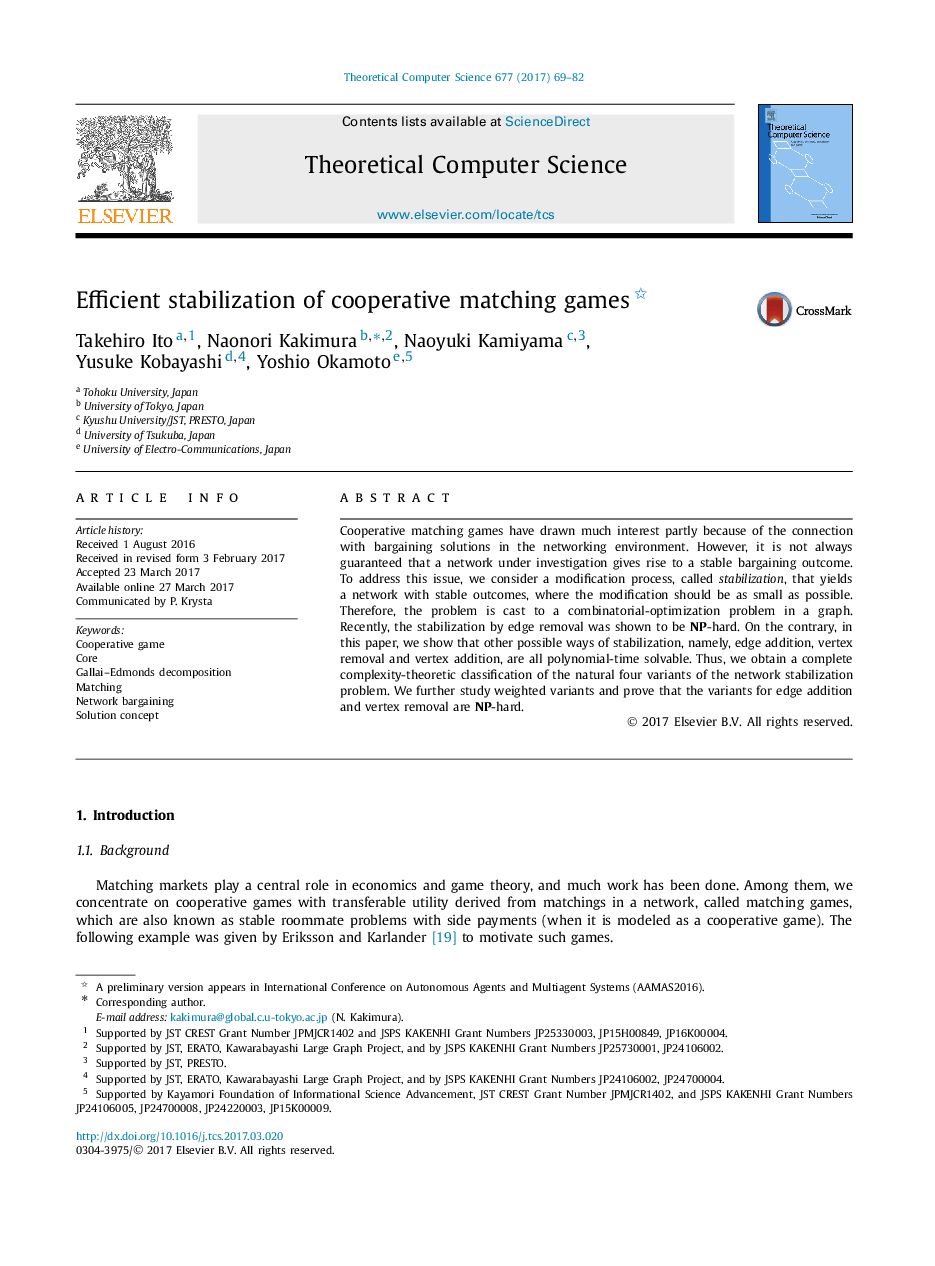| Article ID | Journal | Published Year | Pages | File Type |
|---|---|---|---|---|
| 4952098 | Theoretical Computer Science | 2017 | 14 Pages |
Abstract
Cooperative matching games have drawn much interest partly because of the connection with bargaining solutions in the networking environment. However, it is not always guaranteed that a network under investigation gives rise to a stable bargaining outcome. To address this issue, we consider a modification process, called stabilization, that yields a network with stable outcomes, where the modification should be as small as possible. Therefore, the problem is cast to a combinatorial-optimization problem in a graph. Recently, the stabilization by edge removal was shown to be NP-hard. On the contrary, in this paper, we show that other possible ways of stabilization, namely, edge addition, vertex removal and vertex addition, are all polynomial-time solvable. Thus, we obtain a complete complexity-theoretic classification of the natural four variants of the network stabilization problem. We further study weighted variants and prove that the variants for edge addition and vertex removal are NP-hard.
Related Topics
Physical Sciences and Engineering
Computer Science
Computational Theory and Mathematics
Authors
Takehiro Ito, Naonori Kakimura, Naoyuki Kamiyama, Yusuke Kobayashi, Yoshio Okamoto,
